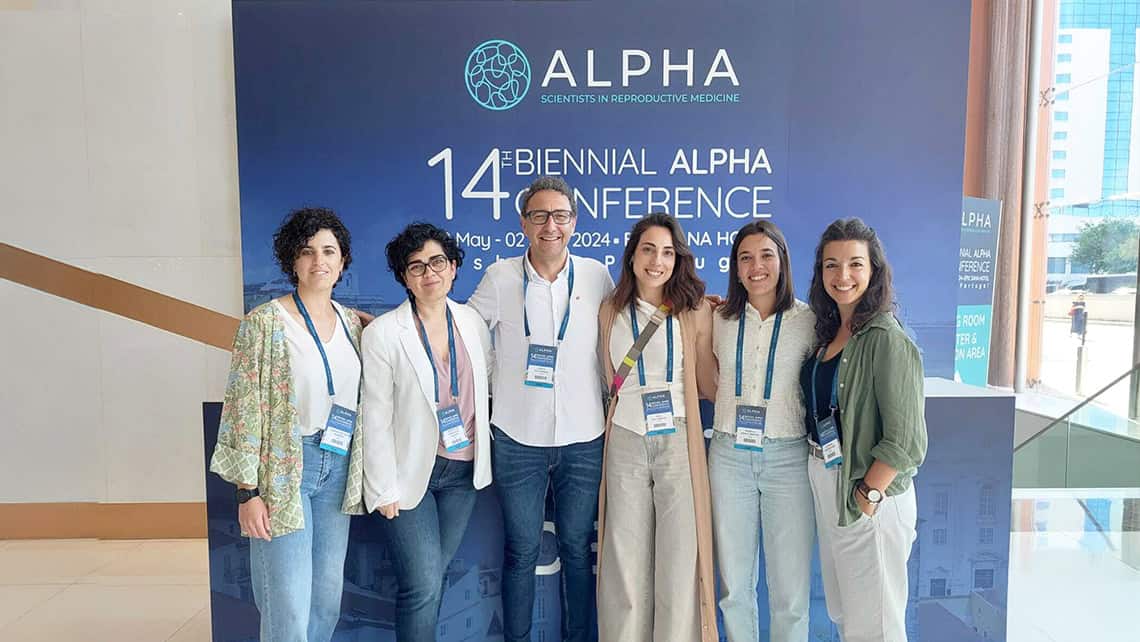Instituto Bernabeu attends the ALPHA congress on assisted reproduction with five scientific studies.
06-06-2024

- Embryologist Rebeca Bravo, from Instituto Bernabeu Madrid, gave an oral communication on a new method of preparing spermatozoa that is less invasive and more efficient than current methods.
- Organisers have also selected four other works by the Instituto Bernabeu team as poster communications.
The ALPHA Congress on Assisted Reproduction, held this year in Lisbon, brought together world experts from assisted reproduction laboratories. This 14th edition programme included sessions on a wide range of topics, such as in vitro fertilisation (IVF), egg and sperm donation and pre-implantation genetic diagnosis (PGD).
Instituto Bernabeu attended this event with a total of five studies, four of them in poster format. On the one hand, biologists Ana Pay and Laura Cascales presented a study on the vaginal microbiome and the ultra-fast method of vitrification and oocyte heating, respectively. On the other, doctors Dori Rodríguez and Jorge Ten presented their research on embryo culture and the role of artificial intelligence in the prediction of live births using embryonic morphokinetic parameters.
Embryologist Rebeca Bravo, from Instituto Bernabeu Madrid, gave an oral presentation on a study analysing the use of the direct swim-up technique for processing semen samples. This method of sperm preparation is less invasive and more efficient and is based on letting the sperm move through a culture medium, without the need for centrifugation. ‘The advantage is that the sperm are not subjected to the stress caused by centrifugation, which could improve the results of IVF cycles,’ explains Rebeca Bravo.
The aim of the Instituto Bernabeu study is to compare the results of this new method with traditional methods of semen sample preparation, such as density gradient and conventional swim-up. ‘If the results of the study confirm that our method is equal or superior to traditional methods, we could implement it in our routine clinical practice,’ says Rebeca Bravo. In this sense, she emphasised that this new method of semen sample preparation is in line with the latest WHO recommendations, which advocate finding methods avoiding ROS (reactive oxygen species) damage to spermatozoa.
‘Studies have shown that centrifugation can damage spermatozoa, so it is important to look for alternatives’, according to Rebeca Bravo, so ‘this way of preparing semen samples is a step forward in this direction and could help to improve success rates of assisted reproduction treatments’.
You can check the complete list of Instituto Bernabeu presentations (oral and poster) selected for the congress by clicking here.
